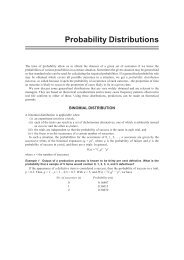International-Business-Dr-R-Chandran-E-book
International-Business-Dr-R-Chandran-E-book
International-Business-Dr-R-Chandran-E-book
Create successful ePaper yourself
Turn your PDF publications into a flip-book with our unique Google optimized e-Paper software.
116<br />
<strong>International</strong> <strong>Business</strong>- <strong>Dr</strong>. R. <strong>Chandran</strong><br />
1. Ethnocentric: Such multinationals concentrate more on their place<br />
of origin. Since they understand their own socio-cultural background<br />
it is easy for them to succeed in their home country. Instead of taking<br />
high risks in other countries they first succeed in their home country<br />
and then slowly more abroad with few changes in the product and<br />
mode of functioning. Mitsukoshi Super Market practices ethnic touch<br />
of Japan in its malls wherever it operates.<br />
2. Regio-centric: Few multinationals focus their activities only in a<br />
particular region like South East Asia or the Gulf region. There are<br />
certain practices that are uniform in nature in a specific region, and<br />
hence they succeed. A region covers many nations; hence the<br />
organization operates in all parts of the region to get the title<br />
‘multinational’. “Continent”, the French super market chain has an<br />
influence in the whole of Indian ocean rim countries.<br />
3. Continental: There are multinationals that are very successful in<br />
particular continent for their specific product ranges. The cost of<br />
storing and warehousing can be brought down if the product is<br />
distributed in the whole continent. There are hundreds of<br />
multinationals doing exceedingly well only in Europe, but are not able<br />
to face cross-cultural challenges in other continents. Therefore, they<br />
remain as continental multinationals. TESCO serves the whole<br />
European continent by understanding the need of every European<br />
community.<br />
4. Polycentric: The majority of multinationals have to simultaneously<br />
enter different countries. It is not possible to adopts a ‘wait and watch’<br />
policy to enter different countries and commence operations. Once a<br />
company invests in an innovation, it has to spread its activities<br />
everywhere, otherwise it will lose the opportunity, and competitors<br />
will step in to get the business. Therefore, companies like Proctor &<br />
Gamble, Unilever, Sony, Electrolux, Henkel and Colgate-Palmolive<br />
are present in almost every part of the world.<br />
5. Trans-national: Multinational like Hewlett Packard has set up subhead<br />
quarters close to the subsidiaries for easy accessibility. The subheadquarters<br />
are located in Singapore or Hong Kong but the main<br />
office remains in California. The trans-national multinationals sole<br />
Only for Private Circulation





